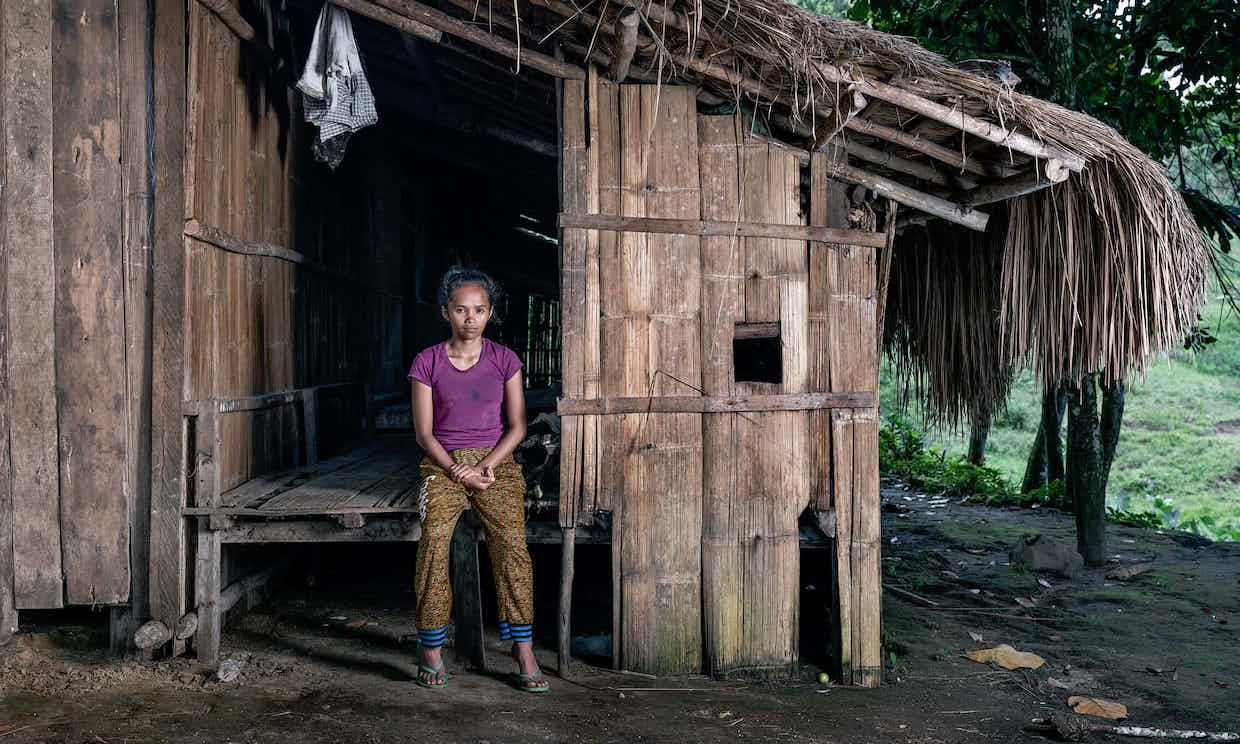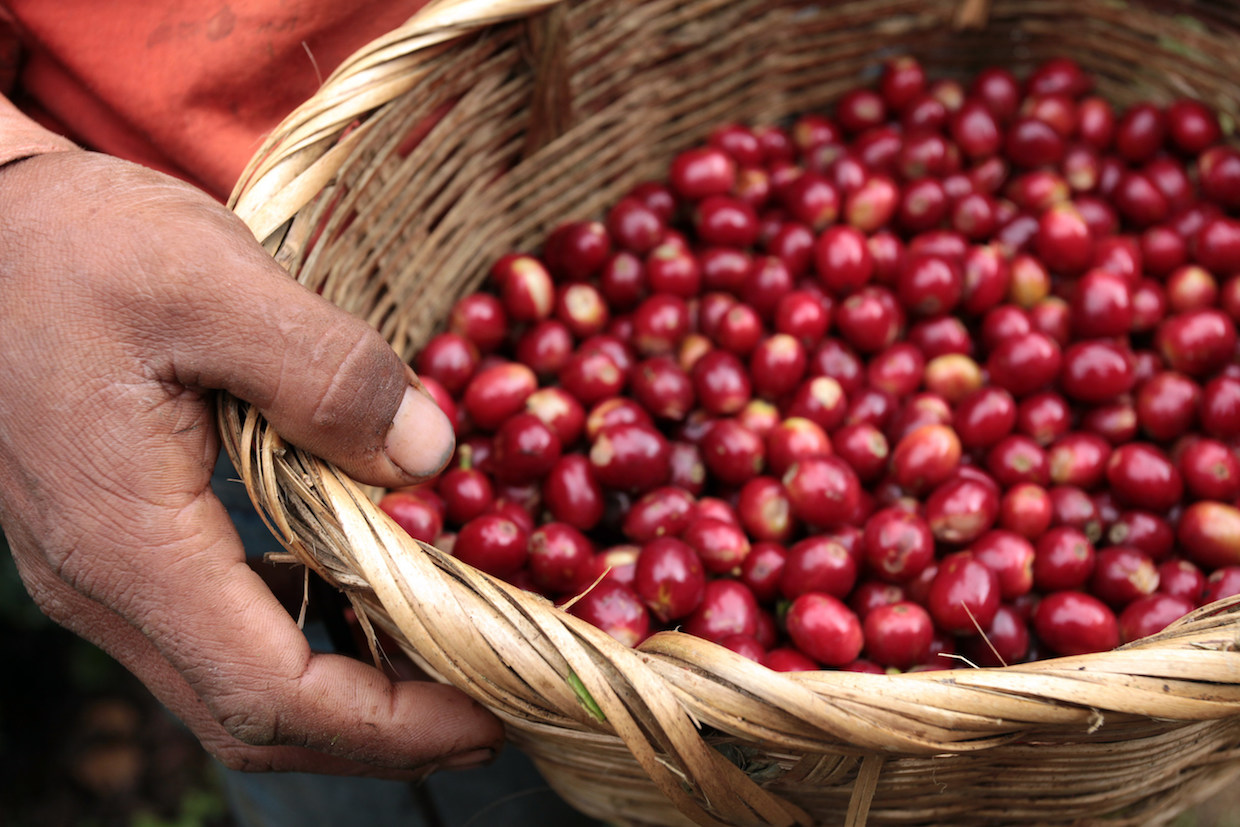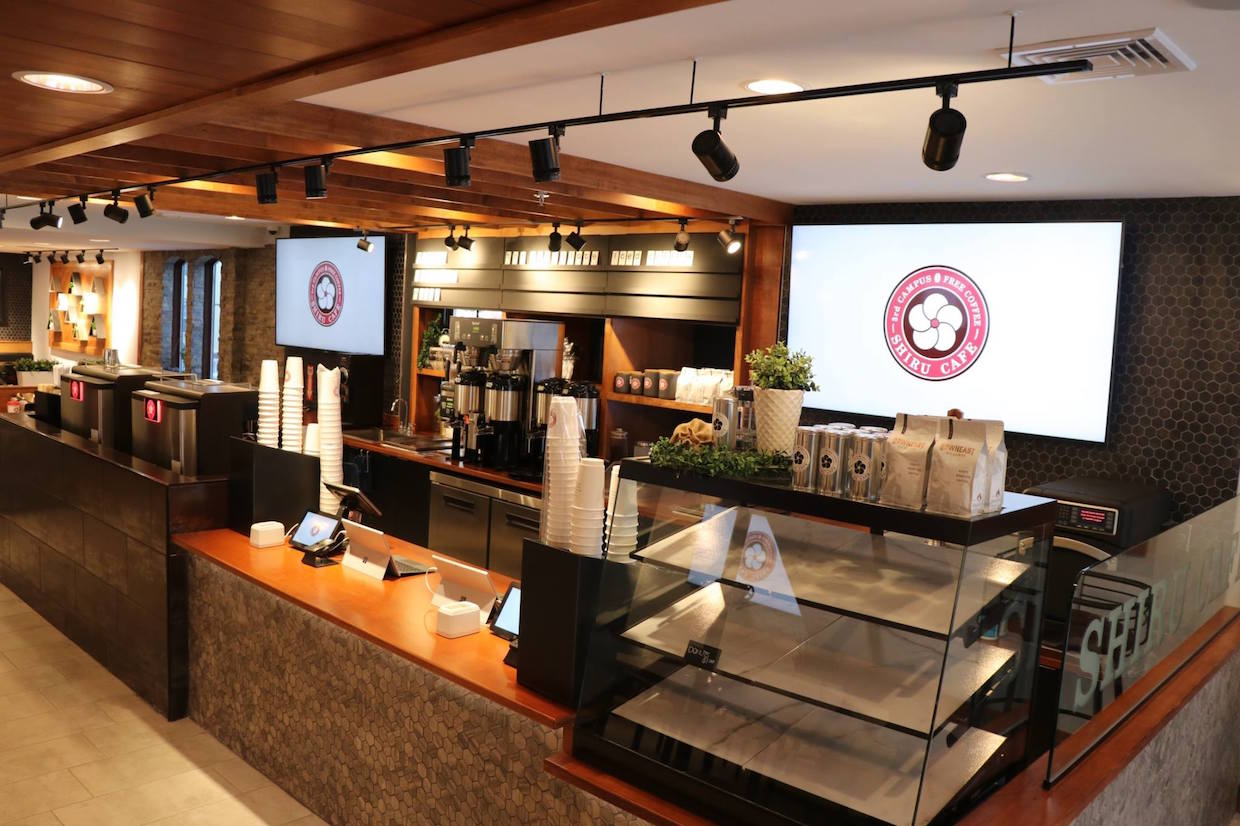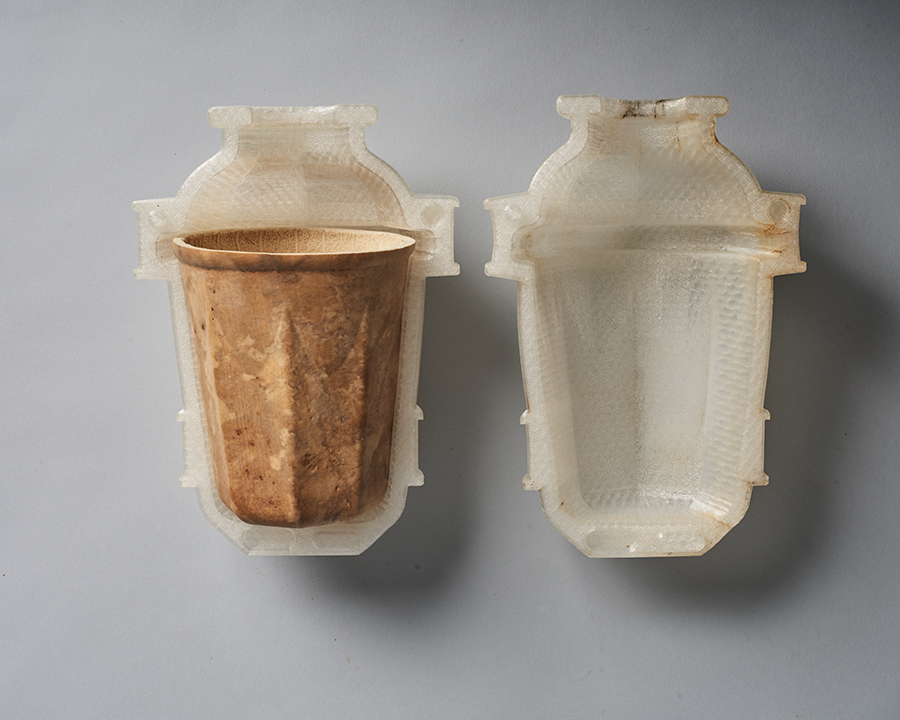Irresponsible coffee plantations are not only terrible for the environment, they’re also potentially fatal for the environmentalists, among others, who struggle to prevent them. This week The Guardian relayed a harrowing account of details surrounding the story of T’boli woman Marivic Danyan, whose indigenous community came under fire from the Philippine army as it sought to seize land for agribusiness profiteering:
Danyan is convinced her father was killed because he stood up against a powerful company, and tried to grow corn for a hungry local community instead of coffee for export.
“I want his protest to be remembered,” she said. “I urge people not to buy coffee from this region. It has caused us so much suffering.”
Huffpost also ran a piece this week that looks at the same phenomenon happening elsewhere around the globe for a variety of imported agricultural products:
For the first time, agribusinesses that produce commodities such as beef, palm oil and coffee overtook mining and natural resource extraction as the most deadly sector for the (mainly) indigenous people who work either voluntarily or professionally to protect environmental or land rights.
Ramón Bedoya’s father, Hernán, was one of those 207 victims. Colombian paramilitaries shot him 14 times after he protested oil palm and banana plantations expanding onto his community’s lands, Global Witness reported.
Fortunately, not every government’s action on behalf of the coffee industry takes as bloody a toll. Business Daily Africa reported that in Kenya, where the government is working to attract farmers back to its “once vibrant” coffee sector, farmers will soon be paid their earnings on a monthly basis, up from every six months, and that coffee prices are on the rise thanks to improvements in quality:
A market report by Nairobi Coffee Exchange (NCE) indicates a 50-kilogramme bag fetched Sh17,400 up from Sh10,500 it attracted last week.
According to the NCE, the rally resulted from an increase in the volume of good beans as the short-term crop from Eastern Kenya started flowing to the market.
Other actors in Kenya are meanwhile pushing for laws that further protect farmers from losing money to the cartels that serve as middlemen, according to The Star:
Lawmakers including Moses Kuria (Gatundu South), Gabriel Kago (Githunguri), Robert Githinji (Gichugu) and Kiambu Woman Representative Gathoni Wa Muchumba addressed the press after a meeting at African Coffee Roasters (ACR) in the Export Processing Zone in Athi River, Machakos county.
Kago said they were surprised to learn that ACR buys coffee from farmers at Sh800 per kilogramme but that they receive only Sh120 due to cartel members who act as middlemen.
He said they will push for legislations to remove all cartels and shorten the market chain, with farmers selling their produce directly to companies.
The Honduras Institute of Coffee is collaborating with the Honduras Institute of Tourism to invite coffee-loving travelers onto the Honduran Coffee Route, which, according to an FTN News report, promises a fun and educational experience amid the lush environs of one of the country’s more important exports:
The Honduran Coffee Route is a journey through six identified coffee regions that allows visitors to hear the success stories of local farmers and learn about their cultivating and roasting procedures while visiting farms, training centers and research facilities in some of the country’s most beautiful destinations.
While Facebook stocks took a monumental nosedive yesterday in what seems to be continual fallout from getting caught playing fast and loose with users’ data, a Japan-based company opening its first US outpost in New Haven, Connecticut, seems to think that it can do the same thing as long as it’s up front about it. Called Shiru Cafe, the business is essentially trading local students free coffee for consent to exploit their demographic data:
Keith Maher, general manager of Shiru Cafe’s first American location in Providence, said the company doesn’t sell students’ data, which includes their name, email, year in school, major and professional interests.
Rather, it compiles aggregate statistics about the students who use the cafe to show to potential corporate sponsors. Money from sponsors sustains the business, which charges nothing for drinks to participating students, except $1 for to-go orders.
“We’ve certainly had questions of what happens to their data,” said Maher, who is also helping open the New Haven cafe. “Mostly, students are very excited to hear about it.”
Data like that is crucial to brands aiming to sway choices made by consumers — choices apparently not available to Tim Hortons franchisees in the United States, who are now suing the coffee chain’s parent company for “equity theft” as well as price gouging on supplies they’re forced to buy from suppliers designated by the company. The Globe and Mail picked up the story:
The Great White North Franchisee Association-U.S., says its members run more than 300 Tim Hortons stores in the United States, and says they are being overcharged for a slew of items such as bacon and vinyl gloves, which they are required to buy from the company’s designated suppliers.
The lawsuit also contends that franchisees are facing “equity theft” because those looking to sell their franchises are forced to first offer their restaurants to Tim Hortons for the price of their depreciated furniture, fixtures and equipment.
All told, the news this week leaves one yearning for simpler times. Perhaps even pre-industrial times, before all our newfangled cups, back when more people quaffed simply from vessels made of dried gourds. Metropolis this week revealed the work of a Brooklyn-based design firm founded by architect Jun Aizaki, who thinks the time of the drinking gourd could come again. Although like everything else these days, it’s complicated:
After some trial and error with delicate materials like rice paper, he settled on gourds, the fleshy fruits known for their strong outer skin. “I kept thinking about biodegradable materials,” says Aizaki. “Gourds have been used as vessels in Asia and South America for centuries.”
The drinking vessels are sourced from a local farm where cucurbits—a type of gourd—find their form by growing into 3D-printed molds. The method is still being refined; currently, only about half of each harvest can produce viable containers because many gourds either rot during the drying process or won’t grow properly in the molds.
Howard Bryman
Howard Bryman is the associate editor of Daily Coffee News by Roast Magazine. He is based in Portland, Oregon.











Comment